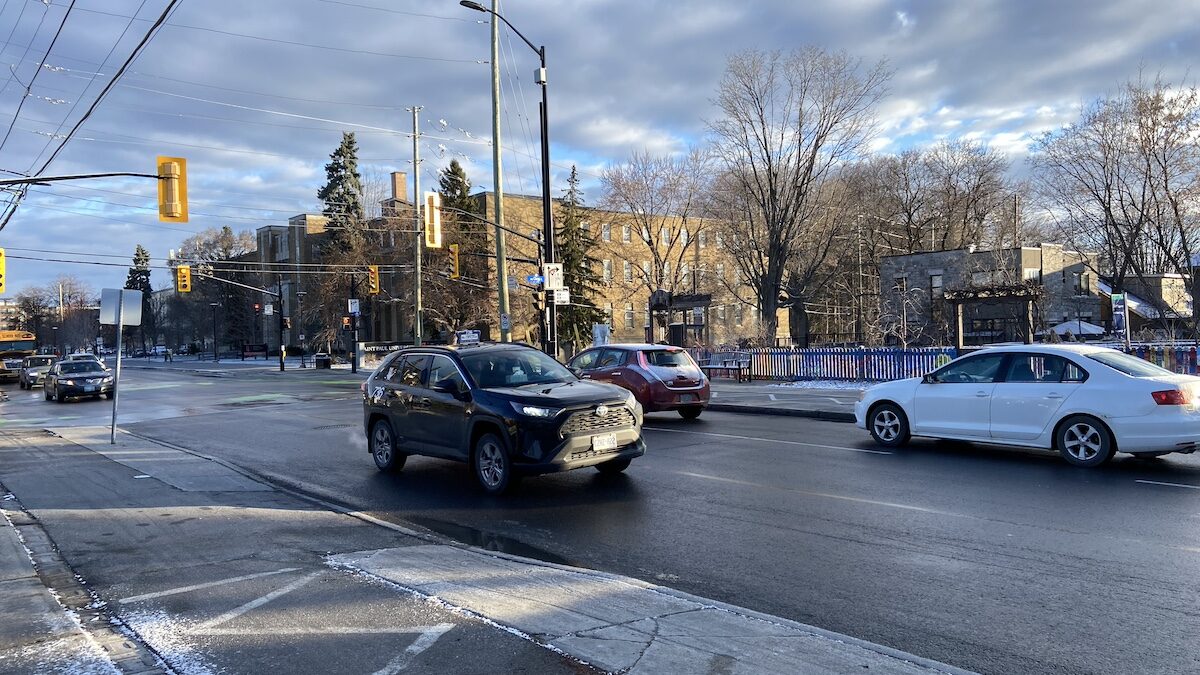On a frosty morning in Orleans, Ryan Heinecke nervously looked out his window to confirm that his 2018 Grey Nissan Rogue was still sitting on his driveway. His car, damaged after a small collision a few weeks before, was still there. But buying a new ride to replace it is out of the question for the 33 year old.
“I’d prefer to drive a damaged car than one that’s going to get stolen,” Heinecke told Capital Current. “It’s just not worth the risk, and I’m stressed out a lot already.”
After reading news stories and hearing whispers in the community about car theft gangs, he said he doesn’t want to take any risks.
“My car is essential to my job as a frontline worker, so even one day of not having a car would be devastating to me.”
In 2023, the Ottawa Police Service filed 2,138 reported car thefts, a 164.3 per cent increase from 2020, when that number was 809, according to Capital Current’s analysis of the police force’s open online crime data.
In a December 2022 news release, police say there are specific locations during the day that have become prime areas for thieves including from grocery store parking lots, recreation and sporting venues and shopping malls during daylight hours.
The police also warned that Acuras, Dodge Durangos, Jeep Grand Cherokees, Toyota Highlanders, Lexus RXs, and Ford F-Series trucks are among the makes and models targeted the most in the Ottawa region.
Capital Current’s analysis revealed that the Ottawa ward with the most reports in car thefts in 2018 to 2023 was Gloucester-Southgate, where 585 stolen vehicles were reported. Runner ups included Rideau-Vanier, Alta Vista, and Orléans South-Navan.
In the 2020 Annual Ottawa Police Service Report, the force says to try and combat this growing trend, it has tried to find ways to work with other police services within the province. For example, in early 2021, Ottawa police joined Project Terrier, a joint operation to address the motor vehicle theft, specifically high-end models, in the province. The York, Toronto, Peel and Durham Police Services were part of the operation that February. By May, nine individuals were facing more than 250 charges.
As part of their effort, the Ottawa police have also issued tips such as keeping cars parked inside garages, installing an after-market vehicle immobilizer and alarm, and using a steering wheel lock.
The severity of the problem prompted a National Summit on Combatting Auto Theft in February. As a result, the federal government said it will increase the Canada Border Service Agency’s capacity to investigate stolen vehicles and banning devices used to steal them. The government of Ontario has created a task force and in the 2024 budget, it announced it will spend $49 million over three years to confront the problem.
Ottawa Coun. David Hill, who represents Barrhaven-West which has been plagued by these thefts, has been advocating for better security measures to be put in place to minimize the crimes and avoid violence.
“I think there's more coordination that needs to happen, because it's a very complex issue, for sure. And the reality is, we're dealing with organized crime. So we're going to find that they're going to adapt, and we're going to have to adapt to their adaptations,” Hill said.
“The auto summit in Ottawa was a great first step, but that was at the ministerial level.”
Hill says there needs to be more communication between the government and the private sector.
He says he believes vehicle manufacturers can do more to assist in decreasing these thefts, such as installing more anti-theft devices.
One aspect of these thefts has also emerged in Capital Current's analysis of data from Statistics Canada — there is also an increasing number of youths 12 to 17 being charged with motor vehicle theft.
The rate of adults committing motor vehicle theft has also been trending upwards since 2015. For those aged 12 to 17, the rate varies year to year. However, it spiked up to a rate of 30.2 per 100,000 in 2022, making that the highest rate of youth being charged for this crime in recent years based on available data.
In the meantime, Heinecke and his damaged vehicle will continue to avoid theft on the streets of Ottawa.
“I might get a used car that's less desirable to thieves,” he said. “But if it's not a desirable car, is there a point in owning it?”




